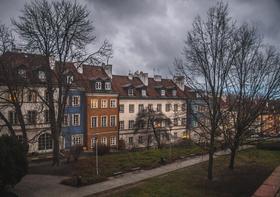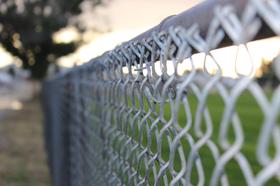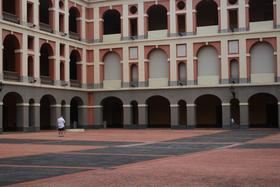Serving 238 students in grades 9-12, Cesar Chavez Pcs For Public Policy - Capitol Hill Elementary School ranks in the bottom 50% of all schools in District Of Columbia for overall test scores (math proficiency is bottom 50%, and reading proficiency is bottom 50%).
The percentage of students achieving proficiency in math was ≤10% (which was lower than the District Of Columbia state average of 32%). The percentage of students achieving proficiency in reading/language arts was ≤10% (which was lower than the District Of Columbia state average of 38%).
The student-teacher ratio of 11:1 was equal to the District Of Columbia state level of 11:1.
School Overview
Grades Offered
Grades 9-12
Total Students
238 students
Gender %
Total Classroom Teachers
21 teachers
School Rankings
Math Test Scores (% Proficient)
(18-19)≤10%
32%
Reading/Language Arts Test Scores (% Proficient)
(18-19)≤10%
38%
Student-Teacher Ratio
11:1
11:1
American Indian
n/a
n/a
Asian
n/a
2%
Hispanic
10%
19%
Black
90%
63%
White
n/a
13%
Hawaiian
n/a
n/a
Two or more races
n/a
3%
All Ethnic Groups
Graduation Rate
(18-19)80-84%
66%
Eligible for Free Lunch
15%
49%
Eligible for Reduced Lunch
60%
8%
School Statewide Testing
School District Name
Source: National Center for Education Statistics (NCES), DC Dept. of Education
Frequently Asked Questions
What percent of students have achieved state testing proficiency in math and reading?
≤10% of students have achieved math proficiency (compared to the 32% DC state average), while ≤10% of students have achieved reading proficiency (compared to the 38% DC state average).
What is the graduation rate of Cesar Chavez Pcs For Public Policy - Capitol Hill Elementary School?
The graduation rate of Cesar Chavez Pcs For Public Policy - Capitol Hill Elementary School is 80-84%, which is higher than the District Of Columbia state average of 66%.
How many students attend Cesar Chavez Pcs For Public Policy - Capitol Hill Elementary School?
238 students attend Cesar Chavez Pcs For Public Policy - Capitol Hill Elementary School.
What is the racial composition of the student body?
90% of Cesar Chavez Pcs For Public Policy - Capitol Hill Elementary School students are Black, and 10% of students are Hispanic.
What is the student-teacher ratio of Cesar Chavez Pcs For Public Policy - Capitol Hill Elementary School?
Cesar Chavez Pcs For Public Policy - Capitol Hill Elementary School has a student ration of 11:1, which is equal to the District Of Columbia state average of 11:1.
What grades does Cesar Chavez Pcs For Public Policy - Capitol Hill Elementary School offer ?
Cesar Chavez Pcs For Public Policy - Capitol Hill Elementary School offers enrollment in grades 9-12
What school district is Cesar Chavez Pcs For Public Policy - Capitol Hill Elementary School part of?
Cesar Chavez Pcs For Public Policy - Capitol Hill Elementary School is part of Cesar Chavez Public Charter School For Public Policy School District.
Recent Articles

School Choice vs. Neighborhood Schools: Key Factors
Explore school choice vs. neighborhood schools in 2025. Learn key factors parents should weigh when deciding the best fit for their child.

Best School Match 2025: Public vs Charter vs Magnet
Compare 2025 public, charter, and magnet school options with updated data, trends, and strategies to find the best fit.

Public School Boundaries and Equity in 2025
Explore how public school boundaries shape access, equity, and opportunity for students in 2025. Learn the impact on families and education policy.





